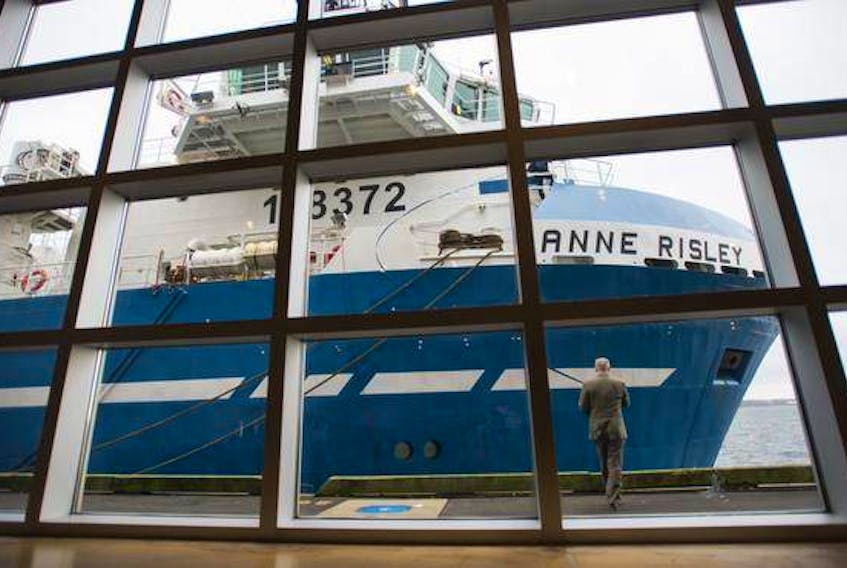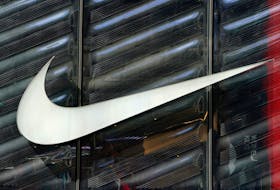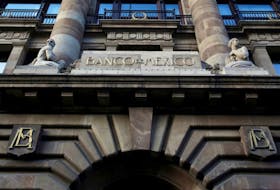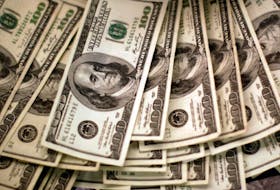By Roger Taylor
The Chronicle Herald
HALIFAX - Clearwater Seafoods of Halifax, N.S. has been fighting a secret battle with North Korea.
Ian Smith, CEO of Clearwater, says his company has spent millions of dollars building up consumer demand for Arctic surf clams in Asia and the North Koreans are using devious methods to infiltrate the Chinese market for surf clams.
“In the China market there’s a very large North Korean Arctic surf clam fishery,” Smith said on Dec. 1 in Halifax during a tour of the latest addition to Clearwater’s clam fishing fleet, the Anne Risley.
The vessel is named in honour of Clearwater co-founder John Risley’s late mother — a Red Cross nurse, mother of four, and an immigrant to Canada who landed at Pier 21, where the vessel bearing her name was introduced.
The North Korean product is identical to the Canadian Arctic surf clam, Smith said. “It’s harvested by North Korean vessels that are owned or controlled by Chinese companies. The product is all processed in China and distributed throughout the Chinese market.
“That North Korean product, we estimate, has also a 50-per-cent share of the market in China and we spent millions of dollars . . . to actually develop the market for this fishery, primarily in Japan and China, but now we have expanded it to (South) Korea, expanded it to Australia and Indonesia as well, not directly from us but through distribution channels,” he said.
“We developed this market, we continue to invest to grow it, so we invested in boats and we’re now catching a full quota and we’ve had to invest to expand markets, channels and the customer base in order to take up the additional supply,” Smith said. “We’ve also invested heavily in product development.”
Clearwater not only supplies the whole clam, it also supplies a finer processed product, which is butterflied, converting a thick, compact piece of meat into a thinner, larger product with all the guts removed. Smith described the fancier product as a “take it out of the tray and it’s about ready to use immediately.”
Although the main target for the clam fishery is Arctic surf clam, Clearwater also has a market for the bycatch, which are mainly propeller clams and cockerel clams. Besides the whole clam, Clearwater has also developed a chopped and a canned clam product.
“When the North Korean product first came to the market, they aggressively counterfeited Clearwater packaging and called it ‘Product of Canada,’” Smith said. “So, we spent millions of dollars over the last five years working with the Chinese government to basically stamp out counterfeit product in the China market.”
He said Clearwater has been building the Arctic surf clam in Asia for more than five years but has been earnestly working over the last five years to stop the counterfeiting.
“So now we have an investigative service that we use, we have a legal service that we use, they work with the Chinese authorities and it has kind of grown in momentum over the last five years,” Smith said.
That work is starting to pay off, he said. There were simultaneous raids in three cities in early November, during which the authorities confiscated thousands of counterfeited Clearwater boxes, thousands of kilograms of North Korean clams, with more than 20 people arrested in the raids.
“The largest company involved (in the counterfeiting) paid a $300,000 fine,” he said.
Clearwater has recently launched a new type of packaging in China which is supposed to make counterfeiting of the packaging more difficult.
Smith said Clearwater doesn’t have the same counterfeit problem with the Japanese market, because the Japanese consumer is interested in food and food safety and wants to know where the clam comes from.
Meanwhile, with a newly modernized fleet of three vessels dedicated to fishing the Arctic, propeller and cockle clam resource off the coast of Nova Scotia and Newfoundland and Labrador year-round, Clearwater expects to recover the $70 million it cost to build the Anne Risley factory ship.
Virtually all of the high-quality product — blanched and individually quick-frozen within an hour of being harvested — will be sold by Clearwater to overseas markets. And because demand is outstripping supply, the price the company is getting for the clams makes it a lucrative fishery.









